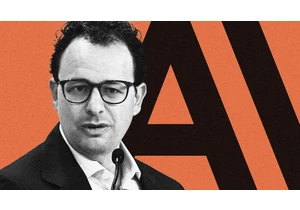On Monday, Google announced a significant policy reversal, saying that it would now keep cookies in its Chrome browser, capitulating to disagreements with the advertising industry and the concerns of European regulators, but risking the wrath of users.
“We recognize this transition requires significant work by many participants and will have an impact on publishers, advertisers, and everyone involved in online advertising,” Anthony Chavez, vice president of Google’s Privacy Sandbox, wrote in a blog post. “In light of this, we are proposing an updated approach that elevates user choice [and] . . . lets people make an informed choice that applies across their web browsing.”
Users would be able to adjust their choices at any time, the company said. (It was unclear about what exact choices users would have.) Google said it is discussing this new path with regulators.
Google initially announced plans to do away with the data tracking technology known as cookies in its Chrome browser in 2020, pledging to do so within two years. That set off a swarm of controversy among marketing companies and advertisers who felt the plan would force them to use Google’s digital-ad products.
Regulators in the U.K. opened an investigation into the plan the following year, looking at whether Google’s plan would negatively impact the digital advertising industry. And the stated deadline began to slip regularly.
Google had last said it planned to begin testing its new feature, Privacy Sandbox, at the beginning of 2024, with just 1% of Chrome users.
“With the Privacy Sandbox, we’re taking a responsible approach to phasing out third-party cookies in Chrome,” the company wrote in a blog post in December. “We’ve built new tools for sites that support key use cases, and provided time for developers to make the transition.”
While the reversal is a win for advertisers, not all users were happy with the decision, taking to social media to voice their frustrations—and mock the company.
Google not going thru with cookie deprecation who could have predicted this? Oh, yeah, me. (And everyone else) https://t.co/yPfQeH3ir2
— david but in survival mode (@Aerocles) July 22, 2024
So @Google because you've pulled the pin on removing 3rd party cookies, after making the ad industry scramble around for half a decade – i'm going to have to invoice you for my wasted time. Prompt payment appreciated, i'm sure your earnings call tmw will show you're good for it. pic.twitter.com/a07J1xtPoW
— Thomas_Alkimi (@ThomasScovell) July 22, 2024
BREAKING: Google Is Keeping Cookies in Chrome After All.
— Jon Davids (@realjondavids) July 22, 2024
I think the new CEO had something to do with it. pic.twitter.com/hQYkykh0gO
I'm so happy that Google is moving back in time to 2021.
— Mario Peshev (@no_fear_inc) July 22, 2024
Killing overviews, new algo update with some recovery from HCU, now keeping cookies… So much joy this month!
Google says the new direction it is taking with cookies will give users more control over their data, with additional privacy controls, including IP Protection (which anonymizes the user’s IP address) in Chrome’s Incognito mode.
The U.K’s Competition and Markets Authority (CMA) had expressed concerns about Google’s proposed changes, fearing it would give the company an unfair advantage in the online space. In a statement Monday, the CMA said it was “considering the impact of this announcement” and would “welcome views until 12 August.”
Cookies have long been a part of web browsing and give advertisers a vast wealth of knowledge about a consumer’s behavior online. The problem, many critics have pointed out, is that most people aren’t aware their activity on one website can be monitored by another (which is why an item you’ve looked at on one site could be advertised on another you visit days later). They also don’t know how brands are using their personal information or how much data brands are collecting. For instance, the U.S. Postal Service, earlier this month, was found to be sharing information (inadvertently) from data-collecting code, which included postal addresses, with companies including Meta and LinkedIn. It’s not clear how many people were affected by the practice.
Advertisers had expressed concerns that without cookies, they would need different digital tools and new methods of ad-targeting and retargeting.
Melden Sie sich an, um einen Kommentar hinzuzufügen
Andere Beiträge in dieser Gruppe



Did you wake up at 4 a.m. on November 6, 2024? If so, you’re not alone.
The 4 a.m. club is a group of people, mostly on TikTok, who say they were spiritually “activated” when they

New analysis has found mobile phone users are being pinged with as many as 50 news alerts daily. Unsurprisingly, many are experiencing “alert fatigue.”
The use of news alerts on phones h

The startup Warp is best known for its modern, AI-empowered take on the terminal—the decades-old,

Want to save pages on the web for later? You could always bookmark them in your browser of choice, of course. But that’s a quick way to end up with a messy bookmarks toolbar. And organizing your b

When a viral Reddit post revealed that ChatGPT cured a five-year medical mystery in seconds, even LinkedIn’s Reid Hoffman took notice. Now, OpenAI’s Sam Altman says Gen Z and Millennials are treat
